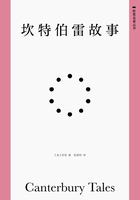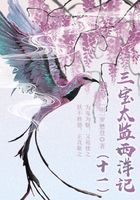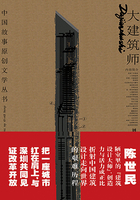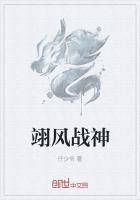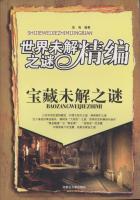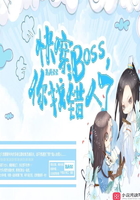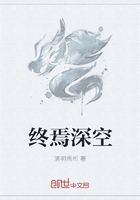I laboured hard at my book, without allowing it to interfere with the punctual discharge of my newspaper duties; and it came out and was very successful. I was not stunned by the praise which sounded in my ears, notwithstanding that I was keenly alive to it, and thought better of my own performance, I have little doubt, than anybody else did. It has always been in my observation of human nature, that a man who has any good reason to believe in himself never flourishes himself before the faces of other people in order that they may believe in him. For this reason, I retained my modesty in very self-respect; and the more praise I got, the more I tried to deserve.
It is not my purpose, in this record, though in all other essentials it is my written memory, to pursue the history of my own fictions. They express themselves, and I leave them to themselves. When I refer to them, incidentally, it is only as a part of my progress.
Having some foundation for believing, by this time, that nature and accident had made me an author, I pursued my vocation with confidence. Without such assurance I should certainly have left it alone, and bestowed my energy on some other endeavour. I should have tried to find out what nature and accident really had made me, and to be that, and nothing else. I had been writing, in the newspaper and elsewhere, so prosperously, that when my new success was achieved, I considered myself reasonably entitled to escape from the dreary debates. One joyful night, therefore, I noted down the music of the parliamentary bagpipes for the last time, and I have never heard it since; though I still recognize the old drone in the newspapers, without any substantial variation (except, perhaps, that there is more of it), all the livelong session.
I now write of the time when I had been married, I suppose, about a year and a half. After several varieties of experiment, we had given up the housekeeping as a bad job. The house kept itself, and we kept a page. The principal function of this retainer was to quarrel with the cook; in which respect he was a perfect Whittington, without his cat, or the remotest chance of being made Lord Mayor.
He appears to me to have lived in a hail of saucepan-lids. His whole existence was a scuffle. He would shriek for help on the most improper occasions,—as when we had a little dinner-party, or a few friends in the evening,—and would come tumbling out of the kitchen, with iron missiles flying after him. We wanted to get rid of him, but he was very much attached to us, and wouldn't go. He was a tearful boy, and broke into such deplorable lamentations, when a cessation of our connexion was hinted at, that we were obliged to keep him. He had no mother—no anything in the way of a relative, that I could discover, except a sister, who fled to America the moment we had taken him off her hands; and he became quartered on us like a horrible young changeling. He had a lively perception of his own unfortunate state, and was always rubbing his eyes with the sleeve of his jacket, or stooping to blow his nose on the extreme corner of a little pocket-handkerchief, which he never would take completely out of his pocket, but always economized and secreted.
This unlucky page, engaged in an evil hour at six pounds ten per annum, was a source of continual trouble to me. I watched him as he grew—and he grew like scarlet beans—with painful apprehensions of the time when he would begin to shave; even of the days when he would be bald or grey. I saw no prospect of ever getting rid of him; and, projecting myself into the future, used to think what an inconvenience he would be when he was an old man.
I never expected anything less, than this unfortunate's manner of getting me out of my difficulty. He stole Dora's watch, which, like everything else belonging to us, had no particular place of its own; and, converting it into money, spent the produce (he was always a weak-minded boy) in incessantly riding up and down between London and Uxbridge outside the coach. He was taken to Bow Street, as well as I remember, on the completion of his fifteenth journey; when four-and-sixpence, and a second-hand fife which he couldn't play, were found upon his person.
The surprise and its consequences would have been much less disagreeable to me if he had not been penitent. But he was very penitent indeed, and in a peculiar way—not in the lump, but by instalments. For example: the day after that on which I was obliged to appear against him, he made certain revelations touching a hamper in the cellar, which we believed to be full of wine, but which had nothing in it except bottles and corks. We supposed he had now eased his mind, and told the worst he knew of the cook; but, a day or two afterwards, his conscience sustained a new twinge, and he disclosed how she had a little girl, who, early every morning, took away our bread; and also how he himself had been suborned to maintain the milkman in coals. In two or three days more, I was informed by the authorities of his having led to the discovery of sirloins of beef among the kitchen-stuff, and sheets in the rag-bag. A little while afterwards, he broke out in an entirely new direction, and confessed to a knowledge of burglarious intentions as to our premises, on the part of the pot-boy, who was immediately taken up. I got to be so ashamed of being such a victim, that I would have given him any money to hold his tongue, or would have offered a round bribe for his being permitted to run away. It was an aggravating circumstance in the case that he had no idea of this, but conceived that he was ****** me amends in every new discovery: not to say, heaping obligations on my head.
At last I ran away myself, whenever I saw an emissary of the police approaching with some new intelligence; and lived a stealthy life until he was tried and ordered to be transported. Even then he couldn't be quiet, but was always writing us letters; and wanted so much to see Dora before he went away, that Dora went to visit him, and fainted when she found herself inside the iron bars. In short, I had no peace of my life until he was expatriated, and made (as I afterwards heard) a shepherd of,‘up the country’somewhere; I have no geographical idea where.
All this led me into some serious reflections, and presented our mistakes in a new aspect; as I could not help communicating to Dora one evening, in spite of my tenderness for her.
‘My love,’said I,‘it is very painful to me to think that our want of system and management, involves not only ourselves (which we have got used to), but other people.’
‘You have been silent for a long time, and now you are going to be cross!’said Dora.
‘No, my dear, indeed! Let me explain to you what I mean.’
‘I think I don't want to know,’said Dora.
‘But I want you to know, my love. Put Jip down.’
Dora put his nose to mine, and said‘Boh!’to drive my seriousness away; but, not succeeding, ordered him into his Pagoda, and sat looking at me, with her hands folded, and a most resigned little expression of countenance.
‘The fact is, my dear,’I began,‘there is contagion in us. We infect everyone about us.’
I might have gone on in this figurative manner, if Dora's face had not admonished me that she was wondering with all her might whether I was going to propose any new kind of vaccination, or other medical remedy, for this unwholesome state of ours. Therefore I checked myself, and made my meaning plainer.
‘It is not merely, my pet,’said I,‘that we lose money and comfort, and even temper sometimes, by not learning to be more careful; but that we incur the serious responsibility of spoiling everyone who comes into our service, or has any dealings with us. I begin to be afraid that the fault is not entirely on one side, but that these people all turn out ill because we don't turn out very well ourselves.’
‘Oh, what an accusation,’exclaimed Dora, opening her eyes wide;‘to say that you ever saw me take gold watches! Oh!’
‘My dearest,’I remonstrated,‘don't talk preposterous nonsense! Who has made the least allusion to gold watches?’
‘You did,’returned Dora.‘You know you did. You said I hadn't turned out well, and compared me to him.’
‘To whom?’I asked.
‘To the page,’sobbed Dora.‘Oh, you cruel fellow, to compare your affectionate wife to a transported page! Why didn't you tell me your opinion of me before we were married? Why didn't you say, you hard-hearted thing, that you were convinced I was worse than a transported page? Oh, what a dreadful opinion to have of me! Oh, my goodness!’
‘Now, Dora, my love,’I returned, gently trying to remove the handkerchief she pressed to her eyes,‘this is not only very ridiculous of you, but very wrong. In the first place, it's not true.’
‘You always said he was a story-teller,’sobbed Dora.‘And now you say the same of me! Oh, what shall I do! What shall I do!’
‘My darling girl,’I retorted,‘I really must entreat you to be reasonable, and listen to what I did say, and do say. My dear Dora, unless we learn to do our duty to those whom we employ, they will never learn to do their duty to us. I am afraid we present opportunities to people to do wrong, that never ought to be presented. Even if we were as lax as we are, in all our arrangements, by choice—which we are not—even if we liked it, and found it agreeable to be so—which we don't—I am persuaded we should have no right to go on in this way. We are positively corrupting people. We are bound to think of that. I can't help thinking of it, Dora. It is a reflection I am unable to dismiss, and it sometimes makes me very uneasy. There, dear, that's all. Come now. Don't be foolish!’
Dora would not allow me, for a long time, to remove the handkerchief. She sat sobbing and murmuring behind it, that, if I was uneasy, why had I ever been married? Why hadn't I said, even the day before we went to church, that I knew I should be uneasy, and I would rather not? If I couldn't bear her, why didn't I send her away to her aunts at Putney, or to Julia Mills in India? Julia would be glad to see her, and would not call her a transported page; Julia never had called her anything of the sort. In short, Dora was so afflicted, and so afflicted me by being in that condition, that I felt it was of no use repeating this kind of effort, though never so mildly, and I must take some other course.
What other course was left to take? To‘form her mind’? This was a common phrase of words which had a fair and promising sound, and I resolved to form Dora's mind.
I began immediately. When Dora was very childish, and I would have infinitely preferred to humour her, I tried to be grave—and disconcerted her, and myself too. I talked to her on the subjects which occupied my thoughts; and I read Shakespeare to her—and fatigued her to the last degree. I accustomed myself to giving her, as it were quite casually, little scraps of useful information, or sound opinion—and she started from them when I let them off, as if they had been crackers. No matter how incidentally or naturally I endeavoured to form my little wife's mind, I could not help seeing that she always had an instinctive perception of what I was about, and became a prey to the keenest apprehensions. In particular, it was clear to me, that she thought Shakespeare a terrible fellow. The formation went on very slowly.
I pressed Traddles into the service without his knowledge; and whenever he came to see us, exploded my mines upon him for the edification of Dora at second hand. The amount of practical wisdom I bestowed upon Traddles in this manner was immense, and of the best quality; but it had no other effect upon Dora than to depress her spirits, and make her always nervous with the dread that it would be her turn next. I found myself in the condition of a schoolmaster, a trap, a pitfall; of always playing spider to Dora's fly, and always pouncing out of my hole to her infinite disturbance.
Still, looking forward through this intermediate stage, to the time when there should be a perfect sympathy between Dora and me, and when I should have‘formed her mind’to my entire satisfaction, I persevered, even for months. Finding at last, however, that, although I had been all this time a very porcupine or hedgehog, bristling all over with determination, I had effected nothing, it began to occur to me that perhaps Dora's mind was already formed.
On further consideration this appeared so likely, that I abandoned my scheme, which had had a more promising appearance in words than in action; resolving henceforth to be satisfied with my child-wife, and to try to change her into nothing else by any process. I was heartily tired of being sagacious and prudent by myself, and of seeing my darling under restraint; so I bought a pretty pair of ear-rings for her, and a collar for Jip, and went home one day to make myself agreeable.
Dora was delighted with the little presents, and kissed me joyfully; but there was a shadow between us, however slight, and I had made up my mind that it should not be there. If there must be such a shadow anywhere, I would keep it for the future in my own breast.
I sat down by my wife on the sofa, and put the ear-rings in her ears; and then I told her that I feared we had not been quite as good company lately, as we used to be, and that the fault was mine. Which I sincerely felt, and which indeed it was.
‘The truth is, Dora, my life,’I said;‘I have been trying to be wise.’
‘And to make me wise too,’said Dora, timidly.‘Haven't you, Doady?’
I nodded assent to the pretty inquiry of the raised eyebrows, and kissed the parted lips.
‘It's of not a bit of use,’said Dora, shaking her head, until the ear-rings rang again.‘You know what a little thing I am, and what I wanted you to call me from the first. If you can't do so, I am afraid you'll never like me. Are you sure you don't think, sometimes, it would have been better to have—’
‘Done what, my dear?’For she made no effort to proceed.
‘Nothing!’said Dora.
‘Nothing?’I repeated.
She put her arms round my neck, and laughed, and called herself by her favourite name of a goose, and hid her face on my shoulder in such a profusion of curls that it was quite a task to clear them away and see it.
‘Don't I think it would have been better to have done nothing, than to have tried to form my little wife's mind?’said I, laughing at myself.‘Is that the question? Yes, indeed, I do.’
‘Is that what you have been trying?’cried Dora.‘Oh what a shocking boy!’
‘But I shall never try any more,’said I.‘For I love her dearly as she is.’
‘Without a story—really?’inquired Dora, creeping closer to me.
‘Why should I seek to change,’said I,‘what has been so precious to me for so long! You never can show better than as your own natural self, my sweet Dora; and we'll try no conceited experiments, but go back to our old way, and be happy.’
‘And be happy!’returned Dora.‘Yes! All day! And you won't mind things going a tiny morsel wrong, sometimes?’
‘No, no,’said I.‘We must do the best we can.’
‘And you won't tell me, any more, that we make other people bad,’coaxed Dora;‘will you? Because you know it's so dreadfully cross!’
‘No, no,’said I.
‘It's better for me to be stupid than uncomfortable, isn't it?’said Dora.
‘Better to be naturally Dora than anything else in the world.’
‘In the world! Ah, Doady, it's a large place!’
She shook her head, turned her delighted bright eyes up to mine, kissed me, broke into a merry laugh, and sprang away to put on Jip's new collar.
So ended my last attempt to make any change in Dora. I had been unhappy in trying it; I could not endure my own solitary wisdom; I could not reconcile it with her former appeal to me as my child-wife. I resolved to do what I could, in a quiet way, to improve our proceedings myself, but I foresaw that my utmost would be very little, or I must degenerate into the spider again, and be for ever lying in wait.
And the shadow I have mentioned, that was not to be between us any more, but was to rest wholly on my own heart? How did that fall?
The old unhappy feeling pervaded my life. It was deepened, if it were changed at all; but it was as undefined as ever, and addressed me like a strain of sorrowful music faintly heard in the night. I loved my wife dearly, and I was happy; but the happiness I had vaguely anticipated, once, was not the happiness I enjoyed, and there was always something wanting.
In fulfilment of the compact I have made with myself, to reflect my mind on this paper, I again examine it, closely, and bring its secrets to the light. What I missed, I still regarded—I always regarded—as something that had been a dream of my youthful fancy; that was incapable of realization; that I was now discovering to be so, with some natural pain, as all men did. But that it would have been better for me if my wife could have helped me more, and shared the many thoughts in which I had no partner; and that this might have been; I knew.
Between these two irreconcilable conclusions: the one, that what I felt was general and unavoidable; the other, that it was particular to me, and might have been different: I balanced curiously, with no distinct sense of their opposition to each other. When I thought of the airy dreams of youth that are incapable of realization, I thought of the better state preceding manhood that I had outgrown; and then the contented days with Agnes, in the dear old house, arose before me, like spectres of the dead, that might have some renewal in another world, but never more could be reanimated here.
Sometimes, the speculation came into my thoughts, What might have happened, or what would have happened, if Dora and I had never known each other? But she was so incorporated with my existence, that it was the idlest of all fancies, and would soon rise out of my reach and sight, like gossamer floating in the air.
I always loved her. What I am describing, slumbered, and half awoke, and slept again, in the innermost recesses of my mind. There was no evidence of it in me; I know of no influence it had in anything I said or did. I bore the weight of all our little cares, and all my projects; Dora held the pens; and we both felt that our shares were adjusted as the case required. She was truly fond of me, and proud of me; and when Agnes wrote a few earnest words in her letters to Dora, of the pride and interest with which my old friends heard of my growing reputation, and read my book as if they heard me speaking its contents, Dora read them out to me with tears of joy in her bright eyes, and said I was a dear old clever, famous boy.
‘The first mistaken impulse of an undisciplined heart.’Those words of Mrs. Strong's were constantly recurring to me, at this time; were almost always present to my mind. I awoke with them, often, in the night; I remember to have even read them, in dreams, inscribed upon the walls of houses. For I knew, now, that my own heart was undisciplined when it first loved Dora; and that if it had been disciplined, it never could have felt, when we were married, what it had felt in its secret experience.
‘There can be no disparity in marriage, like unsuitability of mind and purpose.’Those words I remembered too. I had endeavoured to adapt Dora to myself, and found it impracticable. It remained for me to adapt myself to Dora; to share with her what I could, and be happy; to bear on my own shoulders what I must, and be happy still. This was the discipline to which I tried to bring my heart, when I began to think. It made my second year much happier than my first; and, what was better still, made Dora's life all sunshine.
But, as that year wore on, Dora was not strong. I had hoped that lighter hands than mine would help to mould her character, and that a baby-smile upon her breast might change my child-wife to a woman. It was not to be. The spirit fluttered for a moment on the threshold of its little prison, and, unconscious of captivity, took wing.
‘When I can run about again, as I used to do, aunt,’said Dora,‘I shall make Jip race. He is getting quite slow and lazy.’
‘I suspect, my dear,’said my aunt quietly working by her side,‘he has a worse disorder than that. Age, Dora.’
‘Do you think he is old?’said Dora, astonished.‘Oh, how strange it seems that Jip should be old!’
‘It's a complaint we are all liable to, Little One, as we get on in life,’said my aunt, cheerfully;‘I don't feel more free from it than I used to be, I assure you.’
‘But Jip,’said Dora, looking at him with compassion,‘even little Jip! Oh, poor fellow!’
‘I dare say he'll last a long time yet, Blossom,’said my aunt, patting Dora on the cheek, as she leaned out of her couch to look at Jip, who responded by standing on his hind legs, and baulking himself in various asthmatic attempts to scramble up by the head and shoulders.‘He must have a piece of flannel in his house this winter, and I shouldn't wonder if he came out quite fresh again, with the flowers in the spring. Bless the little dog!’exclaimed my aunt,‘if he had as many lives as a cat, and was on the point of losing 'em all, he'd bark at me with his last breath, I believe!’
Dora had helped him up on the sofa; where he really was defying my aunt to such a furious extent, that he couldn't keep straight, but barked himself sideways. The more my aunt looked at him, the more he reproached her; for she had lately taken to spectacles, and for some inscrutable reason he considered the glasses personal.
Dora made him lie down by her, with a good deal of persuasion; and when he was quiet, drew one of his long ears through and through her hand, repeating thoughtfully,‘Even little Jip! Oh, poor fellow!’
‘His lungs are good enough,’said my aunt, gaily,‘and his dislikes are not at all feeble. He has a good many years before him, no doubt. But if you want a dog to race with, Little Blossom, he has lived too well for that, and I'll give you one.’
‘Thank you, aunt,’said Dora, faintly.‘But don't, please!’
‘No?’said my aunt, taking off her spectacles.
‘I couldn't have any other dog but Jip,’said Dora.‘It would be so unkind to Jip! Besides, I couldn't be such friends with any other dog but Jip; because he wouldn't have known me before I was married, and wouldn't have barked at Doady when he first came to our house. I couldn't care for any other dog but Jip, I am afraid, aunt.’
‘To be sure!’said my aunt, patting her cheek again.‘You are right.’
‘You are not offended,’said Dora.‘Are you?’
‘Why, what a sensitive pet it is!’cried my aunt, bending over her affectionately.‘To think that I could be offended!’
‘No, no, I didn't really think so,’returned Dora;‘but I am a little tired, and it made me silly for a moment—I am always a silly little thing, you know, but it made me more silly—to talk about Jip. He has known me in all that has happened to me, haven't you, Jip? And I couldn't bear to slight him, because he was a little altered—could I, Jip?’
Jip nestled closer to his mistress, and lazily licked her hand.
‘You are not so old, Jip, are you, that you'll leave your mistress yet?’said Dora.‘We may keep one another company a little longer!’
My pretty Dora! When she came down to dinner on the ensuing Sunday, and was so glad to see old Traddles (who always dined with us on Sunday), we thought she would be‘running about as she used to do', in a few days. But they said, wait a few days more; and then, wait a few days more; and still she neither ran nor walked. She looked very pretty, and was very merry; but the little feet that used to be so nimble when they danced round Jip, were dull and motionless.
I began to carry her downstairs every morning, and upstairs every night. She would clasp me round the neck and laugh, the while, as if I did it for a wager. Jip would bark and caper round us, and go on before, and look back on the landing, breathing short, to see that we were coming. My aunt, the best and most cheerful of nurses, would trudge after us, a moving mass of shawls and pillows. Mr. **** would not have relinquished his post of candle-bearer to anyone alive. Traddles would be often at the bottom of the staircase, looking on, and taking charge of sportive messages from Dora to the dearest girl in the world. We made quite a gay procession of it, and my child-wife was the gayest there.
But, sometimes, when I took her up, and felt that she was lighter in my arms, a dead blank feeling came upon me, as if I were approaching to some frozen region yet unseen, that numbed my life. I avoided the recognition of this feeling by any name, or by any communing with myself; until one night, when it was very strong upon me, and my aunt had left her with a parting cry of‘Good night, Little Blossom,’I sat down at my desk alone, and cried to think, Oh what a fatal name it was, and how the blossom withered in its bloom upon the tree!

